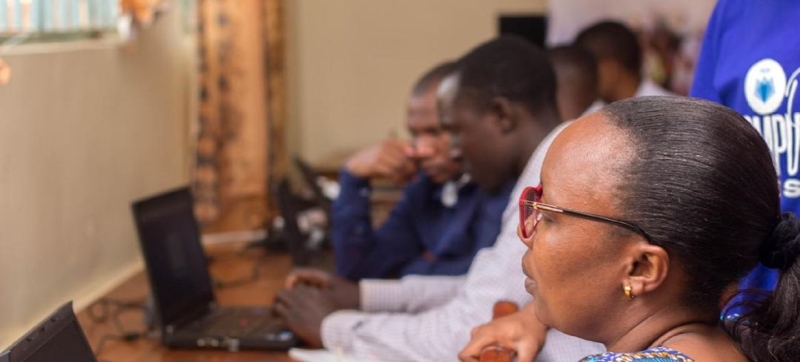
Center for training new technologies for teachers and schoolchildren in Tanzania. Artificial Intelligence and Education: Human Activity in an Automated World Culture and Education
International Education Day, celebrated on 24 January, is dedicated this year to the rapid advancement of artificial intelligence. The theme of human capabilities in an automated world is intended to get people thinking about what education should look like to help children and adults navigate and participate in technological progress.
Prospects and risks
In his message for the Day, the UN Secretary-General noted that today’s technological breakthroughs – such as artificial intelligence – offer exciting prospects for supporting learners of all ages throughout their learning journey.
“However, with these enormous benefits come serious risks,” he warned. “As AI-driven systems become more powerful, there may well be a disconnect between human intentions and machine performance.”
Humans Must Remain in Control
According to Guterres, humans must play a central role in the application and development of technology, and human rights must be put at the forefront.
“We must ensure that AI supports students and teachers by providing them with access to information, advanced curricula and other learning tools,” the UN Secretary-General is convinced. “We must also strive to ensure that all users have the tools and knowledge necessary to use these technologies wisely, safely and ethically.”
International Documents
In this context, the UN chief recalled that UNESCO had developed a set of requirements for the professional qualities needed to support students and teachers in integrating artificial intelligence into learning processes.
Further important steps aimed at ensuring that humanity retains control over the development and management of artificial intelligence are set out in the recently adopted Global Digital Compact. “Artificial intelligence should not replace key human elements of the learning process,” the UN chief concluded his message, calling for “the human dimension to be maintained at the heart of education systems everywhere.”
Increase Investment
In her message to mark the Day, UNESCO Director-General Audrey Azoulay called for increased investment in training for both teachers and students to enable everyone to use AI responsibly.
“AI offers enormous opportunities if its implementation in schools is guided by clear ethical principles. To realize its full potential, this technology must complement the human and social aspects of learning, not replace them,” said Azoulay.
Application of AI in Education
According to UNESCO, more than two-thirds of secondary school students in high-income countries already use generative AI tools to complete their schoolwork. However, the lack of clear guidelines for educators remains a major challenge.
According to a UNESCO survey of 450 educational institutions conducted in May 2023, only 10 percent of schools and universities have formal guidelines for the use of AI.
At the same time, a growing number of countries are imposing restrictions on the use of new technologies in the classroom. New UNESCO data shows that almost 40 percent of countries have adopted laws or regulations banning mobile phones in schools. In July 2023, this figure was 24 percent.
Access to Education
International Day reminds us that access to quality education is a human right that brings enormous benefits not only to individuals but to societies as a whole.
Yet millions of children remain out of school due to various factors, including gender, geography, social disparities or conflict.
Despite decades of progress in education and international commitments, 251 million school-age children worldwide are out of school, according to UNESCO.
Safety and inclusiveness
A recent UNESCO study reported that nearly one in three students has been physically attacked at least once during the school year, and one in ten has experienced cyberbullying.
Many children around the world face violence in schools, which can have devastating consequences, from worsening their overall well-being to lowering their educational outcomes and quality of life.
